To create a breakthrough for 2025, the Ministry of Industry and Trade will focus on improving production capacity, encouraging innovation and promoting sustainable exports to contribute to the country's economic growth.
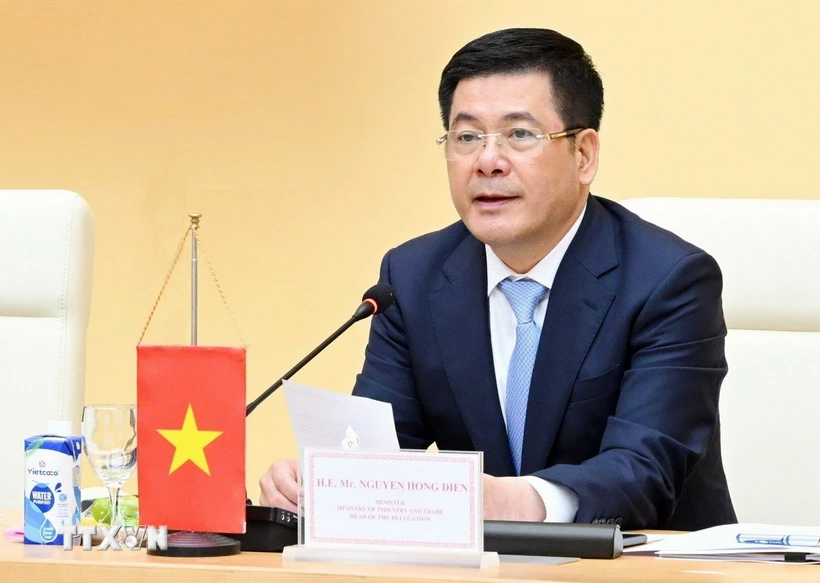
In 2024, Vietnam's economy will continue to face many difficulties and challenges from geopolitical and geo-economic fluctuations in the world and internal problems of the country; especially super typhoon No. 3 and typhoon No. 4 caused severe and widespread damage to the energy, industrial, commercial, production and business infrastructure systems in many localities.
However, together with the whole country, the Industry and Trade sector has strived and achieved many positive and comprehensive results, making important contributions to the country's economic development.
To review the results achieved by the industry and trade sector in 2024 and solutions to create a breakthrough in 2025, VNA reporter interviewed Minister of Industry and Trade Nguyen Hong Dien.
- In 2024, socio-economic development will take place in a context where the world continues to change with many intertwined opportunities and challenges. How does the Minister assess the difficulties that the industry and trade sector in general and businesses in particular must overcome?
Minister Nguyen Hong Dien : The year 2024 takes place in a context where the world continues to have major and unpredictable changes with many intertwined opportunities and challenges. The global economy continues to face challenges from weak growth and high inflation, with growth expected to slow down mainly due to the tightening of monetary policy implemented in the past two years.
In addition, the trend of de-globalization is rising strongly, protectionist policies are reappearing in many countries in many different forms. Developed countries are increasingly concerned about consumer safety, sustainable development, and climate change prevention, thereby establishing new standards and regulations related to supply chains, raw materials, labor, and the environment of imported products...
Along with the process of deep integration, Vietnamese enterprises are effectively exploiting Free Trade Agreements (FTAs), especially new generation FTAs, import and export turnover has had and will continue to have many new opportunities and competitive pressures...
Thanks to the joint efforts of the political system, business community and people, the industry and trade sector believes it will complete the growth target set at the beginning of the year in all areas of industrial production, energy, import-export and domestic trade.
The index of industrial production (IIP) is estimated to increase by 8.4%, the highest level in the 2020-2024 period (the plan is 7-8%); the total electricity output of the entire national power system is estimated to increase by more than 10.1% (the plan is 9.4-9.8%); export turnover is estimated to increase by 16.4% (the plan is 6%), total retail sales of goods and consumer service revenue is estimated to increase by 9%, achieving the plan.

- The trend of de-globalization is rising strongly, protectionist policies are reappearing in many countries in different forms. With such challenges, could the Minister please tell us what are the factors that promote export turnover to maintain growth momentum and what is the role of the Ministry of Industry and Trade in this bright spot?
Minister Nguyen Hong Dien : In the context of de-globalization and the re-emergence of protectionist policies in many countries, Vietnam's positive export results in 2024 were achieved thanks to many important factors. First is the recovery of the global economy.
Some major markets such as the US, EU and Asia have recovered, leading to an increase in demand for imported goods. In addition, businesses have effectively exploited FTAs such as the Comprehensive and Progressive Agreement for Trans-Pacific Partnership (CPTPP) and the Vietnam-EU Free Trade Agreement (EVFTA). Thereby, facilitating Vietnamese goods to access international markets with preferential tax rates and increasing competitiveness.
Furthermore, the diversification of export markets and products is gradually showing its effectiveness as Vietnam boosts exports to new markets and promotes the export of new products in addition to key groups such as electronics, agricultural products, and textiles. In particular, domestic production and export capacity has been gradually improved, with new investments in technology and increased localization value in the supply chain.
In addition, the Government and ministries, branches and localities have been determined to issue and implement policies and solutions to support exports, especially small and medium enterprises, in removing logistics difficulties and promoting international trade.
In order to promote exports as well as support businesses to overcome challenges, the Ministry of Industry and Trade always focuses on informing industry associations about developments in the export market so that businesses can promptly adjust their production plans accordingly and orient themselves to seek orders from foreign markets.
By regularly holding trade promotion meetings with the Vietnamese Trade Office system abroad, the Ministry of Industry and Trade has directed the Trade Office to regularly update information, regulations, standards and conditions of foreign markets that may affect Vietnam's import and export as well as make recommendations to localities, associations and businesses.
At the same time, the Ministry has implemented trade promotion programs, supporting trade connections, especially in potential markets; combining traditional and modern trade promotion, linked with e-commerce and digital economy to diversify the market. At the same time, supporting localities and businesses to build brands, promoting sustainable exports of products with Vietnamese geographical indications.
In addition, the Ministry of Industry and Trade regularly reviews, amends, supplements or proposes competent authorities to amend and supplement relevant legal documents to simplify administrative procedures, promote implementation through online public services to facilitate import and export. Not stopping there, the Ministry also actively advises and negotiates to expand the FTA network, creating conditions for Vietnamese goods to enjoy preferential tax rates and expand the consumer market. At the same time, it promotes propaganda and guides businesses to effectively utilize signed FTAs.
- Countries are increasingly concerned with consumer safety, sustainable development, and climate change, thereby establishing standards and regulations related to green standards, reducing greenhouse gas emissions, and sustainable development of goods on the market. So what solutions does the Ministry of Industry and Trade have to support businesses in responding to these regulations?
Minister Nguyen Hong Dien : Green growth, reduction of greenhouse gas emissions, and reduction of carbon footprint in the production of goods and services are common global trends. Many countries in the world have been setting up strict technical management barriers related to sustainable development and response to climate change.
For example, the European Union (EU) Green Deal stipulates that to achieve the neutrality target by 2050, it is necessary to reduce greenhouse gas emissions, transition to energy, implement a circular economy, develop sustainable agriculture, conserve nature, and apply a carbon border adjustment tax (CBAM) policy.
Some countries such as the US, UK and Australia are planning to apply policy mechanisms to limit greenhouse gas emissions similar to the CBAM mechanism.

Furthermore, the EU's CBAM policy will apply to a number of industries such as steel, fertilizer, cement, aluminum and electricity. Accordingly, goods imported into Europe will have to purchase "CBAM certificates" corresponding to the amount of carbon emissions from imported goods. In the near future, this mechanism can be extended to other industries currently exporting to the European market such as textiles, footwear, seafood, wood... and with the precedent of the CBAM mechanism, it is likely that many other countries will also apply it such as the UK, US, Australia, Japan...
To meet the regulations of countries around the world, I think that businesses need to soon research and implement solutions to reduce greenhouse gas emissions such as switching to clean energy sources, reducing dependence on fossil fuels. At the same time, use energy economically and efficiently, apply cleaner production and switch to green production to limit the impact of common global policies and countries around the world.
In order to support businesses, the Ministry of Industry and Trade has submitted to the Prime Minister many policy mechanisms to support green transformation, reduce greenhouse gas emissions and carbon reduction. For example, the National Program on Energy Efficiency and Conservation for the 2019-2030 period; the National Action Program on Sustainable Production and Consumption for the 2021-2030 period.
The Ministry also issued a circular regulating the technical aspects of measuring, reporting and assessing greenhouse gas emission reduction, greenhouse gas inventory in the industry and trade sector; planning and developing strategies for the energy sector towards increasing the proportion of clean energy and renewable energy, reducing dependence on fossil energy sources. Thereby, helping businesses control greenhouse gas emissions in the production and business process and orienting development towards green growth, low carbon emissions, contributing to Vietnam's net zero emissions target by 2050.
- Dear Minister, to create a breakthrough for 2025, what specific plans will the Ministry of Industry and Trade have in policy planning to help businesses in production and export to contribute to the country's economic growth?
Minister Nguyen Hong Dien : To create a breakthrough for 2025 and promote the country's economic growth, in addition to providing market information to ensure regular updates on regulations, standards and conditions of foreign markets, the Ministry of Industry and Trade will focus on improving production capacity, encouraging innovation and promoting sustainable exports to contribute to the country's economic growth.
In addition, the Ministry of Industry and Trade continues to support businesses to maximize benefits from signed FTAs; organize training programs, conferences and advise businesses on rules of origin of goods to take advantage of tariff incentives while helping businesses understand market standards and requirements within the FTA framework to increase sustainable exports.
On the other hand, coordinate with relevant ministries and sectors to support businesses in building supply chains, ensuring raw material sources meet international standards on safety, environment and sustainable development. Programs connecting businesses with reputable domestic and international suppliers will help optimize production costs and improve the competitiveness of Vietnamese goods.
In addition, the Ministry of Industry and Trade continues to review, amend, supplement or propose competent authorities to amend and supplement relevant legal documents to simplify administrative procedures and promote implementation through online public services to facilitate import and export.
The Ministry will also implement trade promotion in conjunction with identifying potential markets and potential products. At the same time, it will promote programs to support businesses in digital transformation, especially small and medium enterprises. Applying new technology, automating production processes and managing via digital platforms not only helps save costs but also improves labor productivity, meeting international market requirements on quality and delivery progress.
Furthermore, the Ministry will focus on developing logistics services; urge and coordinate with units to carry out the tasks assigned in the Prime Minister's Decision on implementing the Plan to improve competitiveness and develop Vietnam's logistics services by 2025. The Ministry of Industry and Trade has submitted to the Government for approval and promulgation the Strategy for developing Vietnam's logistics services for the period 2025-2035, with a vision to 2050, and is continuing to coordinate to complete the strategy.
In particular, the Ministry of Industry and Trade will continue to implement solutions to develop sustainable border trade by promoting export activities through border gates in the form of official channels, effectively managing and clearing exports to China./.
- Thank you very much, Minister!


![[Photo] Ca Mau "struggling" to cope with the highest tide of the year, forecast to exceed alert level 3](https://vphoto.vietnam.vn/thumb/1200x675/vietnam/resource/IMAGE/2025/11/04/1762235371445_ndo_br_trieu-cuong-2-6486-jpg.webp)

![[Photo] Panorama of the Patriotic Emulation Congress of Nhan Dan Newspaper for the period 2025-2030](https://vphoto.vietnam.vn/thumb/1200x675/vietnam/resource/IMAGE/2025/11/04/1762252775462_ndo_br_dhthiduayeuncbaond-6125-jpg.webp)
![[Photo] Ho Chi Minh City Youth Take Action for a Cleaner Environment](https://vphoto.vietnam.vn/thumb/1200x675/vietnam/resource/IMAGE/2025/11/04/1762233574890_550816358-1108586934787014-6430522970717297480-n-1-jpg.webp)

![[Photo] The road connecting Dong Nai with Ho Chi Minh City is still unfinished after 5 years of construction.](https://vphoto.vietnam.vn/thumb/1200x675/vietnam/resource/IMAGE/2025/11/04/1762241675985_ndo_br_dji-20251104104418-0635-d-resize-1295-jpg.webp)
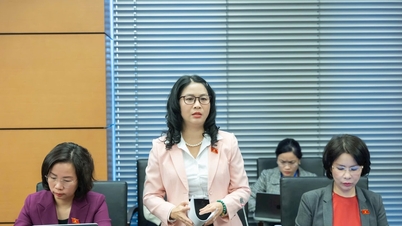



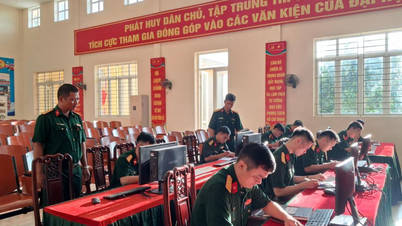



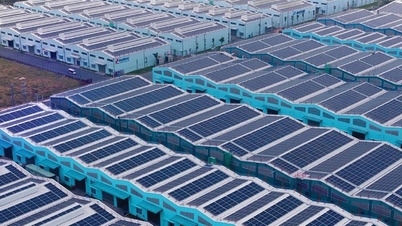

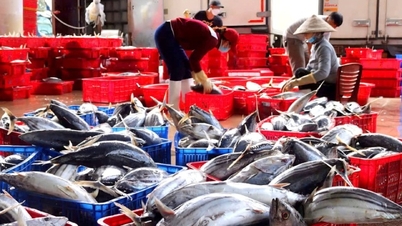



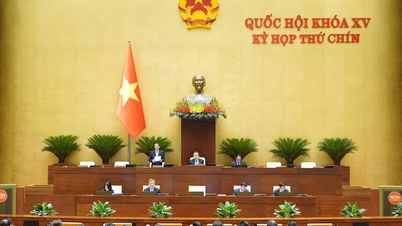


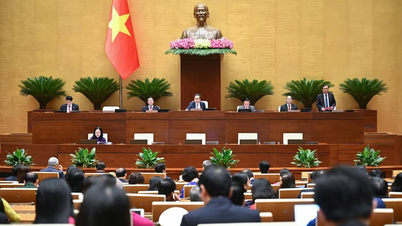

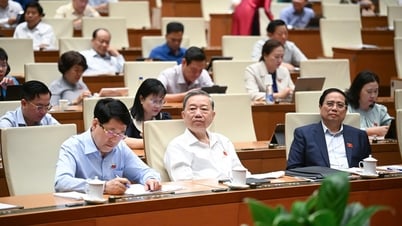





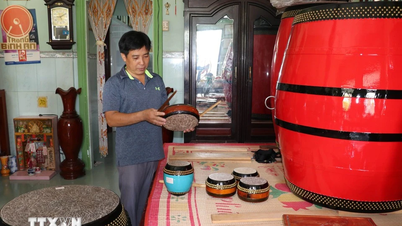


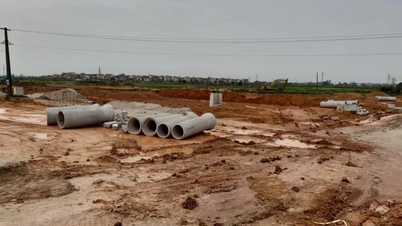
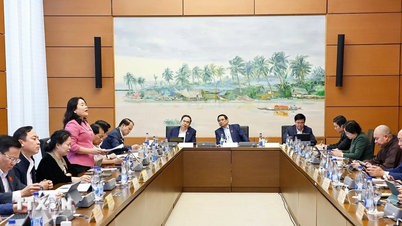
























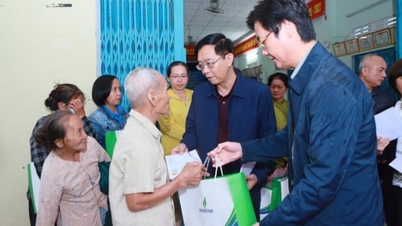









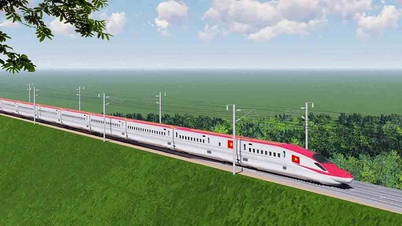
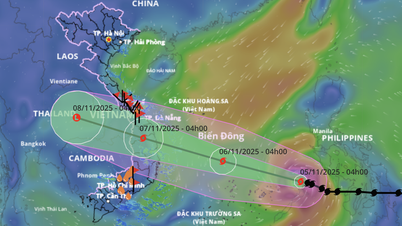



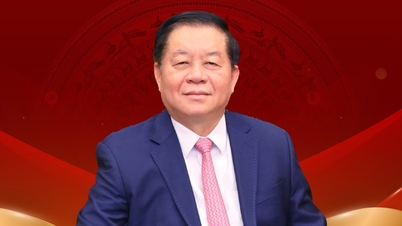













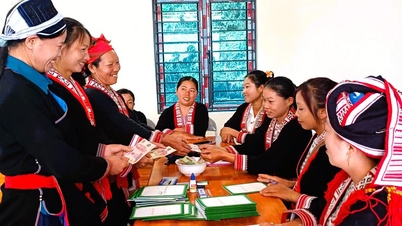


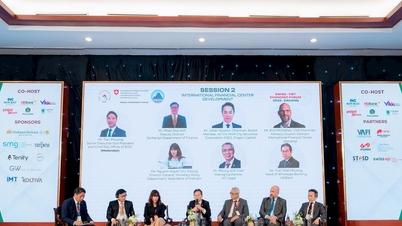















Comment (0)